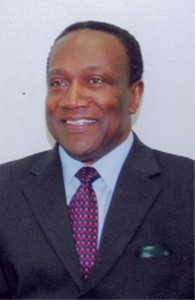The implementation of all the facets of the Caricom Single Market and Economy (CSME) by the 2015 deadline, remains one of the main priorities of Caricom, Secretary-General Edwin Carrington said.

Speaking at his end-of-year press conference on Thursday, in which regional journalists participated via video and telephone conferencing, Carrington said the CSME remains at the heart of the community’s integration plans. And he said, in spite of several challenges, Caricom has taken several initiatives this year to advance regional integration among its member states.
Carrington said he was extremely optimistic that Caricom would meet its 2015 deadline despite its initial challenges. The Secretary-General had been asked to confirm whether talk about the secretariat extending the time frame for the full implementation of the CSME targets was accurate. He responded that it was too early to be talking about extending a deadline, adding that if the plan was not fully in place by the established deadline it would indicate that the relevant parties did not want it to be implemented.
He also disclosed what some of the challenges were, saying that while the free movement of skilled peopled was occurring, many were still not being afforded contingency rights when they had relocated. Contingency rights refer to the migrated Caricom national being given the same rights that the citizens of his new homeland receive. He also said that in some cases it was proving problematic for some workers to have their families relocate with them.
Meanwhile, according to the statistics over 1,000 citizens of Caricom member states have been denied entry at the major airports in Barbados, Jamaica and Trinidad. However, this is a small percentage when compared with the thousands who travel to these countries daily. In Jamaica, 11 Caricom nationals were denied entry out of 9,100 visitors earlier this year. In Trinidad 455 out of 62,000 visitors between January and November were denied entry. In Barbados, 603 out of 85,682 visitors, between January and June, were turned away.
And according to Steven Mc Andrew, who oversees free movement of skills and labour concerns in the region, these persons were travelling and were either refused entry because of fraudulent documents, insufficient money to sustain them on their trip or because they were unable to provide all the necessary details to the immigration officials.
Carrington said one of the main successes of the year would be the signing of the Economic Partnership Agreement (EPA) by the Cariforum countries (Caricom members and the Dominican Republic belong to this group). Guyana, after its initial reluctance, belatedly signed the agreement after some amendments had been made.
However, Carrington said that there still remain several issues to be dealt with regarding its full implementation. However, he maintained that the agreement was a good thing for the region especially in the light of the current global financial crisis. Additionally, he said, the community was currently negotiating another partnership agreement with Canada, which, if successful, will have a positive impact on the region.
Meanwhile, he said there remained some conflict between the Dominican Republic and Haiti that needed to be addressed. And although these countries shared the island of Hispaniola, historically they have had a tumultuous relationship with each other.
According to the EPA, any concession given to any one of these countries would have to be given to its neighbour. However, according to Carrington, the Dominican Republic has indicated a willingness to meet Caricom and discuss the issues.
Another significant achievement by the community which the Secretary-General cited was the launch of the Caricom Development Fund (CDF) in St John’s, Antigua, in July, at the 29th Heads of Government Conference of Caricom. He said the CDF was started with US$67 million. However, according to the Economic Advisor to the Secretary-General, Dr Maurice Odle, none of this money has been used, although some states have submitted requests. He said these are currently being reviewed and by next year, some of the funds will be released.





